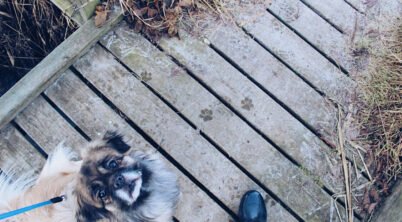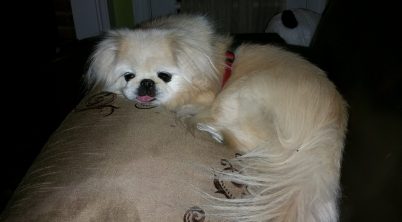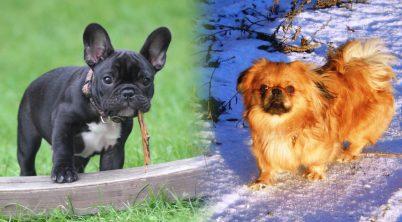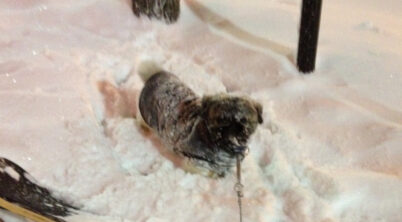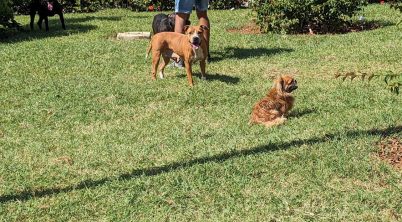The Pekingese, an ancient breed hailing from China, is cherished for its spirited companionship and affectionate nature. As these small but valiant dogs advance in age, they generally display a set of symptoms common in elderly canines. Recognizing these symptoms is vital for providing the appropriate care and comfort to these seasoned companions.
With a life expectancy ranging from 10 to 15 years, Pekingese may eventually exhibit signs of diminished vitality such as lower energy levels, which were once a hallmark of their personality. Other old age symptoms to watch for include a decrease in mobility, changes in behavior, and an increased susceptibility to health problems. As Pekingese enter their senior years, attentive care and regular veterinary check-ups become increasingly important to ensure their well-being.
Understanding and addressing the common issues faced by aging Pekingese can help owners ensure that their pets enjoy their golden years. While changes associated with aging are inevitable, early detection and management of age-related symptoms can contribute to a better quality of life for these dignified dogs. Consequently, owners of Pekingese should stay informed about the nuances of aging in this breed to provide the necessary support and care.
Table of Contents
Recognizing Old Age Symptoms in Pekingese
As Pekingese dogs enter their senior years, they begin to exhibit a range of symptoms related to aging. It’s crucial for pet owners to recognize these changes to provide the best care.
Physical Changes and Mobility Issues
Senior Pekingese may experience a decline in physical ability and movement. Symptoms to look for include:
- Slowed movement or reluctance to move
- Stiffness in the legs, indicating possible arthritis or joint issues
- Difficulty jumping or navigating stairs
Maintaining a healthy weight through proper nutrition and exercise can help manage mobility issues.
Health Conditions in Senior Pekingese
Old age in Pekingese dogs is often accompanied by health problems such as:
- Heart disease, characterized by persistent cough, breathing difficulties, and lethargy
- Respiratory system problems, linked to their brachycephalic (flat-faced) nature
- Dental problems, which could present as loss of appetite or difficulty eating
- Eye problems like cataracts, which can affect their vision
Routine veterinary check-ups are essential for early detection and management of these conditions.
Behavioral and Cognitive Changes
Changes in behavior or cognitive function can indicate aging in Pekingese. Signs include:
- Decreased interest in play or interaction
- Increased rest, with longer and more frequent sleeping periods
- Signs of cognitive decline, such as confusion or disorientation
Creating a stress-free environment and providing enough companionship may alleviate some symptoms.
Caring for an Aging Pekingese
Appropriate care for an aging Pekingese involves several aspects:
- Dietary management: Feeding high-quality dog food and ensuring a balanced diet.
- Exercise: Tailoring daily exercise to their energy levels and health status.
- Grooming: Regular grooming to monitor skin issues and maintain coat health.
- Medical Care: Prompt diagnosis and treatment of any emerging health conditions with regular veterinary care.
Integrating these practices will support their well-being in their senior years.
Dietary Management for Older Pekingese
As Pekingese dogs enter their senior years, dietary management becomes crucial to maintain their health and address age-related concerns, such as obesity and dental issues. A careful selection of diet and appropriate supplementation can significantly impact their quality of life.
Feeding Considerations and Adjustments
Older Pekingese may require fewer calories due to decreased activity levels, but they still need a balanced diet rich in nutrients. Dog food for senior dogs should have high-quality protein and be easily digestible. Adjustments to portion sizes and feeding frequencies can help prevent obesity, which is a common issue in aging Pekingese. Regular consultations with a veterinarian can guide tailored dietary changes as the dog’s metabolism and nutritional needs evolve.
The Importance of Dental Health
Dental care is vital for senior Pekingese as they are prone to dental issues. Oral health problems can affect their ability to chew and thus, their overall nutrition. Incorporate soft, wet foods or specially formulated senior kibbles that are easier on their teeth. Encourage good dental hygiene practices with daily brushing and provide dental chews that aid in plaque removal.
Maintaining Proper Hydration and Nutrition
Seniors need to maintain adequate water intake to support kidney function and overall health. Fresh water should be available at all times. Balanced nutrition should include the right mix of fats, carbohydrates, and proteins. Consider a diet that addresses specific health problems such as arthritis or allergies, and discuss with the veterinarian any changes in diet needed to support your Pekingese’s health.
Supplements and Medications
Supplementation may be beneficial for aging Pekingese. Glucosamine and Chondroitin can support joint health, while omega fatty acids can maintain skin and coat health. A vet may also prescribe medications for age-related health conditions. Always administer vitamins and supplements under veterinary care to ensure they are necessary and given in the correct dosage.
Veterinary Care and Preventative Measures
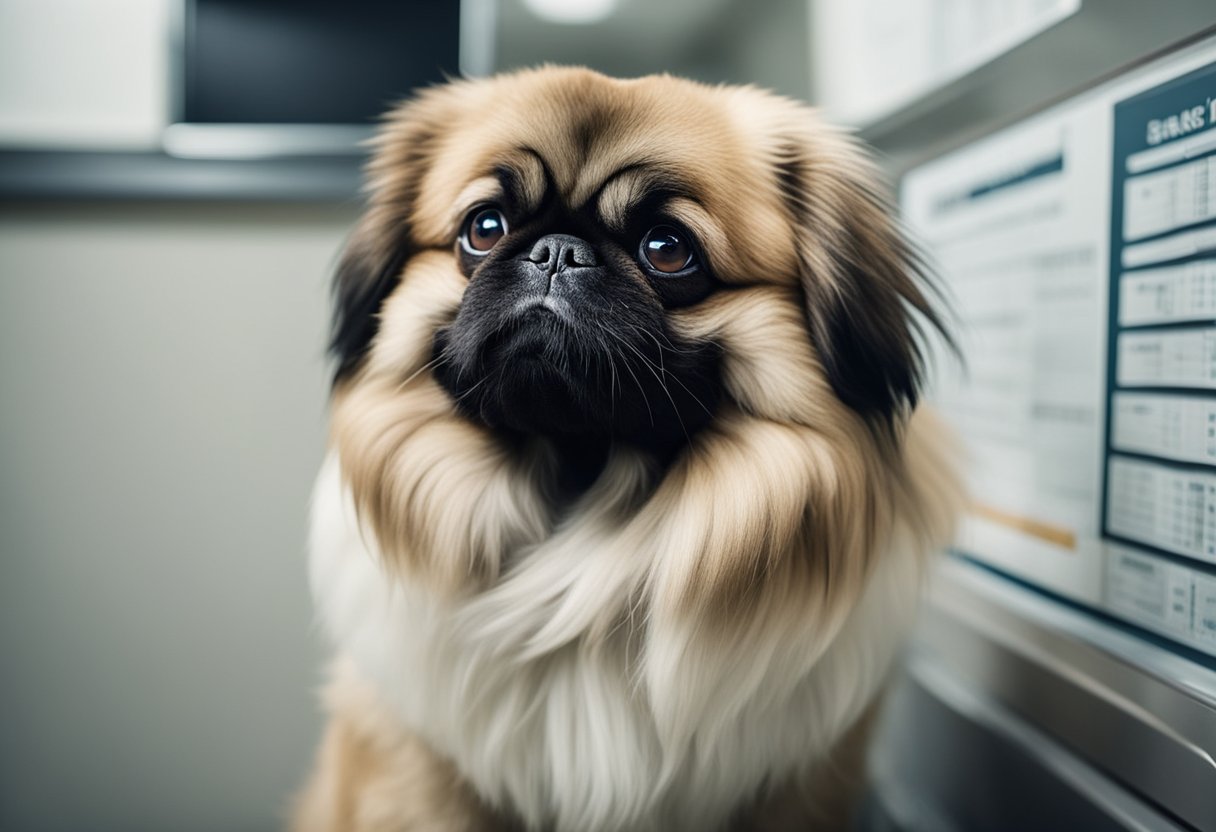
Maintaining the health of a Pekingese as they age requires a comprehensive approach that includes regular veterinary care and preventative measures. This ensures early detection of potential issues and management of any chronic conditions that may arise.
Routine Veterinary Check-Ups
Annual veterinary check-ups are crucial for monitoring the health of an elderly Pekingese. During these visits, veterinarians can administer necessary vaccinations and conduct thorough physical examinations to check for signs of disease or age-related health problems.
- Physical Examination: Checking for signs of arthritis, skin infections, or breathing difficulties.
- Dental Care: To prevent infections and maintain oral health.
- Bloodwork: Essential for detecting early signs of disease such as kidney or liver issues.
Managing Chronic Conditions
Chronic conditions such as heart disease, arthritis, or cancer require ongoing veterinary support. Medication may be prescribed to manage pain, improve breathing, or support the immune system. Regular monitoring by a veterinarian can adjust treatment as needed.
- Medication Schedules: Detailed plans for administering prescribed drugs.
- Diet and Exercise: Adjustments to support health and manage conditions.
- Regular Monitoring: Frequent check-ups to assess the effectiveness of treatments.
Understanding and Recognizing Emergencies
Being able to recognize signs of an emergency is essential. Symptoms like trouble breathing, vomiting, or intense discomfort signify a need for immediate veterinary attention. Knowledge of the nearest 24-hour veterinary clinic is vital for timely care.
- Emergency Signs: Lists of symptoms that warrant urgent care.
- First-Aid Measures: Initial steps to take before reaching a veterinarian.
End-Of-Life Care and Considerations
As Pekingese reach the end stages of their lives, quality of life becomes a primary concern. Discussions with a veterinarian about humane choices, including pain management and when to consider euthanasia, are important for the well-being of the pet.
- Comfort Measures: Ensuring the pet has a comfortable resting area, companionship, and gentle care.
- Decisions on Euthanasia: Understanding when it is the most humane option to prevent suffering.
Each stage of an elderly Pekingese’s life requires compassionate and specialized care to ensure their continued well-being. By adhering to a strict routine of veterinary care and preventative practices, owners can help manage their pet’s health conditions and provide a comfortable life in their golden years.
Environment and Lifestyle Adaptations for Senior Pekingese
As Pekingese dogs age, their lifestyle and environment require adjustments to cater to their changing needs, ensuring their comfort and well-being.
Creating a Comfortable Living Space
For senior Pekingese, their environment should be safe and easily navigable. This breed often deals with joint issues and their stocky, muscular bodies can make movement difficult. Soft bedding and non-slip floor coverings can prevent discomfort and injuries. Ramps or steps can aid access to furniture if they are accustomed to resting there.
The Role of Exercise and Mental Stimulation
While the body of a senior Pekingese may not handle intense activity, moderate daily exercise is still essential for maintaining their health. Short walks and low-impact play maintain their muscular bodies without overexertion. Mental stimulation, such as puzzle feeders or gentle games, can keep their mind sharp and mitigate stress.
Grooming and Skin Care
Senior Pekingese require regular grooming to manage their shedding and prevent skin problems, which includes skin infections or allergies. Their grooming routine may include occasional baths, careful brushing, and checks for any skin irregularities. A calm grooming environment helps minimize stress, and gentle handling is imperative for their comfort.
Social Interaction and Mental Health
The affectionate Pekingese thrives on companionship and benefits from social interaction to maintain good mental health. Reserved yet opinionated, they appreciate familiar faces and consistent attention. As they age, it’s crucial to balance their need for interaction with their necessity for rest, ensuring they don’t become overwhelmed by excitement or stress.

